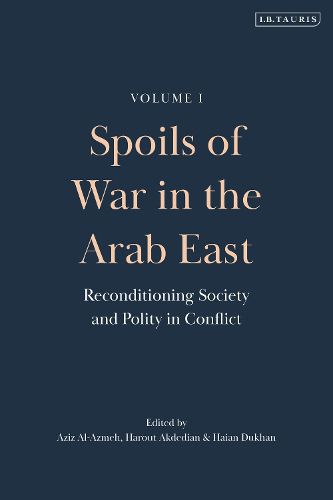Readings Newsletter
Become a Readings Member to make your shopping experience even easier.
Sign in or sign up for free!
You’re not far away from qualifying for FREE standard shipping within Australia
You’ve qualified for FREE standard shipping within Australia
The cart is loading…






Post-conflict scenarios are often proposed for Arab countries that have witnessed significant changes and civil wars. Yet the plans for reconciliation, transitional justice, and the return of the displaced often overlook the real conditions that make these recommendations impossible.
This book provides a critical analysis of current post-conflict frameworks for Syria and Iraq. Drawing on empirical research, the book shows that reconciliation and reconstruction scenarios need to be considered alongside the realities on the ground. It argues that Iraq and Syria exist in a condition of 'conflict transformation' rather than of 'conflict termination', because the extreme changes that accompanied these countries into war continue long after the conflicts end. Furthermore, the chapters highlight why experts should not seek solutions in culturalist terms and ancestral enmities, or rely on the wartime status quo. Rather, they should look to the specific military, political, economic and socio-cultural conditions that require different solutions.
A critical analysis of existing post-conflict frameworks, their applicability and their potential outcomes in Iraq and Syria, the book is a vital contribution to post-conflict studies. It highlights the need for new approaches to reconstruction and peacebuilding in Arab countries and points to how they should be found.
$9.00 standard shipping within Australia
FREE standard shipping within Australia for orders over $100.00
Express & International shipping calculated at checkout
Post-conflict scenarios are often proposed for Arab countries that have witnessed significant changes and civil wars. Yet the plans for reconciliation, transitional justice, and the return of the displaced often overlook the real conditions that make these recommendations impossible.
This book provides a critical analysis of current post-conflict frameworks for Syria and Iraq. Drawing on empirical research, the book shows that reconciliation and reconstruction scenarios need to be considered alongside the realities on the ground. It argues that Iraq and Syria exist in a condition of 'conflict transformation' rather than of 'conflict termination', because the extreme changes that accompanied these countries into war continue long after the conflicts end. Furthermore, the chapters highlight why experts should not seek solutions in culturalist terms and ancestral enmities, or rely on the wartime status quo. Rather, they should look to the specific military, political, economic and socio-cultural conditions that require different solutions.
A critical analysis of existing post-conflict frameworks, their applicability and their potential outcomes in Iraq and Syria, the book is a vital contribution to post-conflict studies. It highlights the need for new approaches to reconstruction and peacebuilding in Arab countries and points to how they should be found.